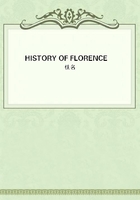
第18章
The people of Padua, finding themselves in equal danger, and knowing that, having became master of Aquileia, Attila would next attack themselves, also removed with their most valuable property to a place on the same sea, called Rivo Alto, to which they brought their women, children, and aged persons, leaving the youth in Padua to assist in her defense. Besides these, the people of Monselice, with the inhabitants of the surrounding hills, driven by similar fears, fled to the same rocks. But after Attila had taken Aquileia, and destroyed Padua, Monselice, Vicenza, and Verona, the people of Padua and others who were powerful, continued to inhabit the marshes about Rivo Alto;and, in like manner, all the people of the province anciently called Venetia, driven by the same events, became collected in these marshes.
Thus, under the pressure of necessity, they left an agreeable and fertile country to occupy one sterile and unwholesome. However, in consequence of a great number of people being drawn together into a comparatively small space, in a short time they made those places not only habitable, but delightful; and having established among themselves laws and useful regulations, enjoyed themselves in security amid the devastations of Italy, and soon increased both in reputation and strength. For, besides the inhabitants already mentioned, many fled to these places from the cities of Lombardy, principally to escape from the cruelties of Clefis king of the Lombards, which greatly tended to increase the numbers of the new city; and in the conventions which were made between Pepin, king of France, and the emperor of Greece, when the former, at the entreaty of the pope, came to drive the Lombards out of Italy, the duke of Benevento and the Venetians did not render obedience to either the one or the other, but alone enjoyed their liberty. As necessity had led them to dwell on sterile rocks, they were compelled to seek the means of subsistence elsewhere; and voyaging with their ships to every port of the ocean, their city became a depository for the various products of the world, and was itself filled with men of every nation.
For many years the Venetians sought no other dominion than that which tended to facilitate their commercial enterprises, and thus acquired many ports in Greece and Syria; and as the French had made frequent use of their ships in voyages to Asia, the island of Candia was assigned to them in recompense for these services. While they lived in this manner, their name spread terror over the seas, and was held in veneration throughout Italy. This was so completely the case, that they were generally chosen to arbitrate in controversies between the states, as occurred in the difference between the Colleagues, on account of the cities they had divided among themselves; which being referred to the Venetians, they awarded Brescia and Bergamo to the Visconti. But when, in the course of time, urged by their eagerness for dominion, they had made themselves masters of Padua, Vicenza, Trevisa, and afterward of Verona, Bergamo, and Brescia, with many cities in Romagna and the kingdom of Naples, other nations were impressed with such an opinion of their power, that they were a terror, not only to the princes of Italy, but to the ultramontane kings. These states entered into an alliance against them, and in one day wrested from them the provinces they had obtained with so much labor and expense; and although they have in latter times reacquired some portions, still possessing neither power nor reputation, like all the other Italian powers, they live at the mercy of others.
Benedict XII. having attained the pontificate and finding Italy lost, fearing, too, that the emperor would assume the sovereignty of the country, determined to make friends of all who had usurped the government of those cities which had been accustomed to obey the emperor; that they might have occasion to dread the latter, and unite with himself in the defense of Italy. To this end he issued a decree, confirming to all the tyrants of Lombardy the places they had seized.
After making this concession the pope died, and was succeeded by Clement VI. The emperor, seeing with what a liberal hand the pontiff had bestowed the dominions of the empire, in order to be equally bountiful with the property of others, gave to all who had assumed sovereignty over the cities or territories of the church, the imperial authority to retain possession of them. By this means Galeotto Malatesti and his brothers became lords of Rimino, Pesaro, and Fano;Antonio da Montefeltro, of the Marca and Urbino; Gentile da Varano, of Camerino; Guido di Polenta, of Ravenna; Sinibaldo Ordelaffi, of Furli and Cesena; Giovanni Manfredi, of Faenza; Lodovico Alidossi, of Imola;and besides these, many others in divers places. Thus, of all the cities, towns, or fortresses of the church, few remained without a prince; for she did not recover herself till the time of Alexander VI., who, by the ruin of the descendants of these princes, restored the authority of the church.
The emperor, when he made the concession before named, being at Tarento, signified an intention of going into Italy. In consequence of this, many battles were fought in Lombardy, and the Visconti became lords of Parma. Robert king of Naples, now died, leaving only two grandchildren, the issue of his sons Charles, who had died a considerable time before him. He ordered that the elder of the two, whose name was Giovanna or Joan, should be heiress of the kingdom, and take for her husband Andrea, son of the king of Hungary, his grandson.
Andrea had not lived with her long, before she caused him to be murdered, and married another cousin, Louis, prince of Tarento. But Louis, king of Hungary, and brother of Andrea, in order to avenge his death, brought forces into Italy, and drove Queen Joan and her husband out of the kingdom.